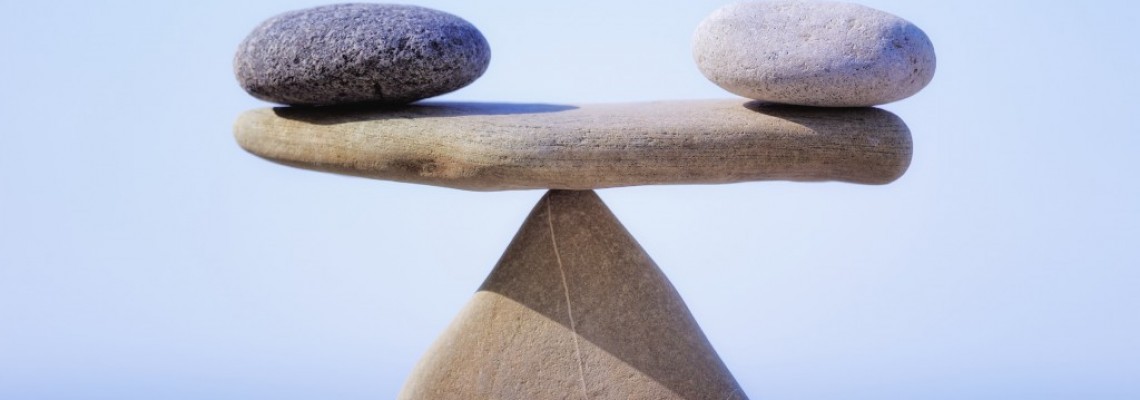 Happiness is within your grasp. There are simple things each of us can to every day that can help us be happier. These are things that we can try, work on and practise. Practice is always going to be important but I also want something that gives instant impact so that we can remember the impact and keep doing it! And one of the best things we can do to boost happiness and mental health is create a little balance in our lives.
Happiness is within your grasp. There are simple things each of us can to every day that can help us be happier. These are things that we can try, work on and practise. Practice is always going to be important but I also want something that gives instant impact so that we can remember the impact and keep doing it! And one of the best things we can do to boost happiness and mental health is create a little balance in our lives.Our A – Z of happiness blog series is designed to give you those steps to happiness that we know bring about immediate effect.
We may recognise the importance of this but find it hard to do – we seem to be constantly rushing from one thing to another and our to-do list is never complete. Balance is a state of equilibrium that is inherent in the human condition. Yet our world is really out of balance at the moment and it is for this reason that so many of us feel imbalanced. Our lives are impacted by constant change, speed, uncertainty, new technologies, globalisation and the associated demands that actually ignore our basic human needs. The result of all this imbalance is stress and unhappiness.
Work life balance is traditionally interpreted as a balance between work and life as if there is always a clear divide between the two. Perhaps we need to be talking more about life balance? Life balance is not only essential for your happiness and wellbeing but can also be a tremendous boost to your productivity levels as the boundaries between work and life lessen.
 The key to creating balance in your life is to start small. Start small because you will notice an immediate impact when you do. Here are some ways to do that:
The key to creating balance in your life is to start small. Start small because you will notice an immediate impact when you do. Here are some ways to do that:1. Switch it off! One small action will immediately bring more calm and balance to your days: disconnect – try it for a weekend or for a day and if you can’t manage that then try just for a few hours. Give your poor brain a rest from being “always on”. Instead spend time with family, friends, drinking tea and slowing down.
2. Be healthy – if you are out of balance you are also likely to not be sleeping well or eating nutritional foods. You’ll be far happier if you are getting enough sleep, taking exercise and eating healthy food. Go for a walk, try cooking a delicious meal from fresh ingredients and use lavender essential oils to help you wind down at night.
3. Spend time alone – Making time for you is probably the hardest thing to do for the typical overworked and overwhelmed person, but it is crucial for lowering stress, increasing happiness and encouraging creativity. Some things to try: meditate, write, sketch, do some yoga or simply sit quietly for a few minutes each day and do absolutely nothing.
4. Explore the world – Take a walk and pay attention to what’s going on around you. Notice buildings, nature and people. Take a new route, visit a new town or try being a tourist in your own. Attend a local performance, play amateur photographer or go to the park and with children play. They really know how to enjoy life!
5. Relationships matter – Set aside quality time with your family and friends Don’t just sit in front of the screen – really connect and pay attention to those you care about. Make a date with your significant other, have coffee with a friend, play a game with a child. Really get to know the people around you.
Try to do some of these things over the coming week. Try to critically assess your life from a balance perspective. You will know best of all which things feel out of balance. We can tell ourselves there is no time and there is too much to be done but by rushing around from one thing to the next we can end up getting even less done and feeling overwhelmed and burned out. Balance has to also be about how you are spending your time – when work and life blur as much as they do now you have to be in control over how you manage your technology, multiple demands on your time and energy and still have well-being and harmony. All of these actions are within your control and it’s vital to put energy on the things that are inside your control when there is so much uncertainty and change around us.
Have you answered a work email during an important family event? Or taken a call from your boss while on vacation? According to behavioral scientist and Harvard Business School professor Ashley Whillans, “always-on” work culture is not only ruining our personal well-being — but our work, as well. She shares which bad habits are stopping us from getting what we need out of our free time and three practical steps for setting boundaries that stick.
